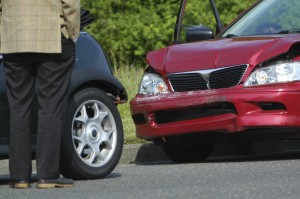 Even the most careful drivers make mistakes. Some dangerous behaviors are obvious, but sometimes we do very dangerous things in the course of normal driving without even being aware of it. For instance, you know better than to drink and drive, and that certain types of prescription medications cause impairment, but you may not realize that the over-the-counter medicine you took this morning could cause you to crash. Here are some driving hazards you can learn to spot and avoid.
Even the most careful drivers make mistakes. Some dangerous behaviors are obvious, but sometimes we do very dangerous things in the course of normal driving without even being aware of it. For instance, you know better than to drink and drive, and that certain types of prescription medications cause impairment, but you may not realize that the over-the-counter medicine you took this morning could cause you to crash. Here are some driving hazards you can learn to spot and avoid.
Fatigue
Fatigue is impairment. It impairs your judgement and slows reaction time. Fatigued drivers are more likely to get impatient and make bad decisions, and in a poll by the National Sleep Foundation, 12% of drivers said they tend to drive faster when they are drowsy.
The deceptive nature of fatigue is that, much like alcohol, it impairs your ability to perceive the fact that you are impaired.
Excessive speed
Just because you are not driving over the speed limit does not mean you aren’t driving too fast for the conditions. Reasons to slow down include:
- Traffic conditions
- Poor visibility due to weather or smoke from fires
- Wet, icy, or otherwise slick roads
- Damaged roads
- Driving in areas where wildlife is likely to enter the road
Over-the-Counter Medication
Always read the label, even on your over-the-counter (OTC) medications. Some can cause drowsiness and impairment for hours, even affecting your ability to drive the next morning. The effect can be compounded when you are sick and not sleeping well to begin with. Three types of OTC medications that commonly impair driving are:
- Allergy medication (antihistamines)
- Antidiarrheals, such as Imodium
- Anti-emetics, for nausea, vomiting, dizziness typically associate with motion sickness
If you aren’t sure about the side effects of a medication or combination of medications you are taking, ask your pharmacist.















